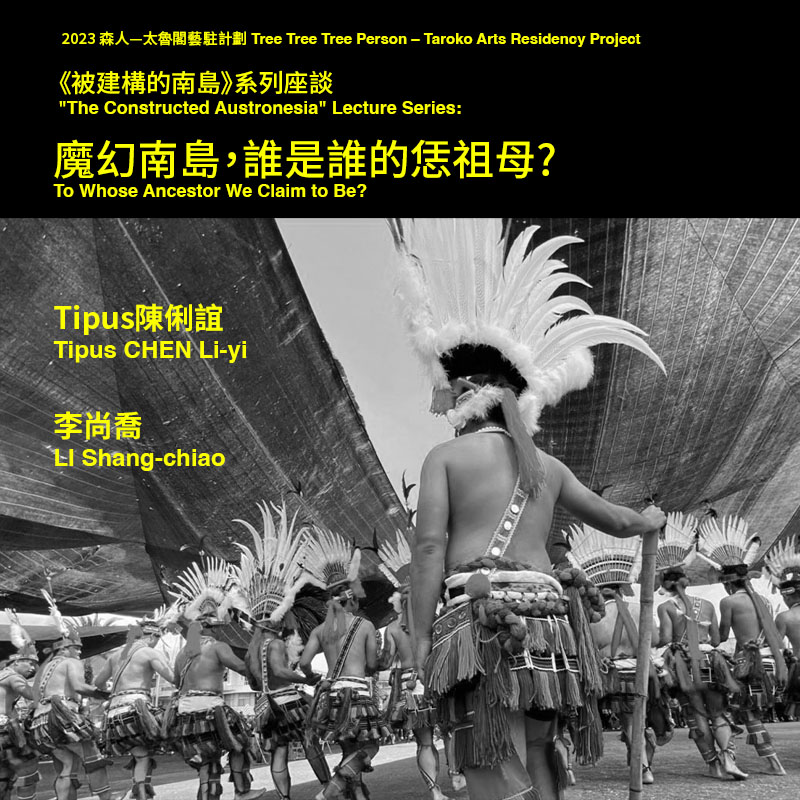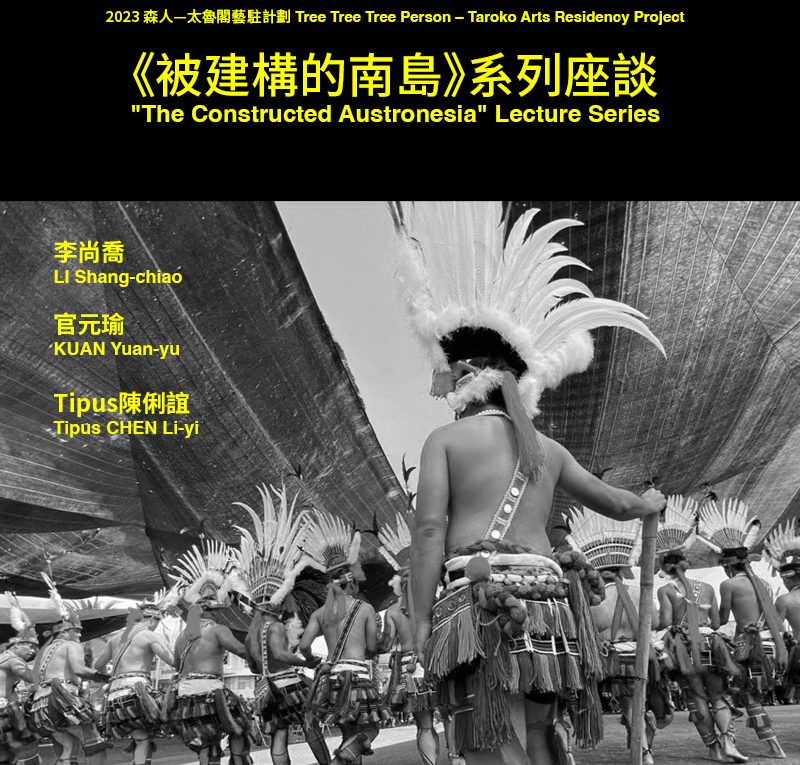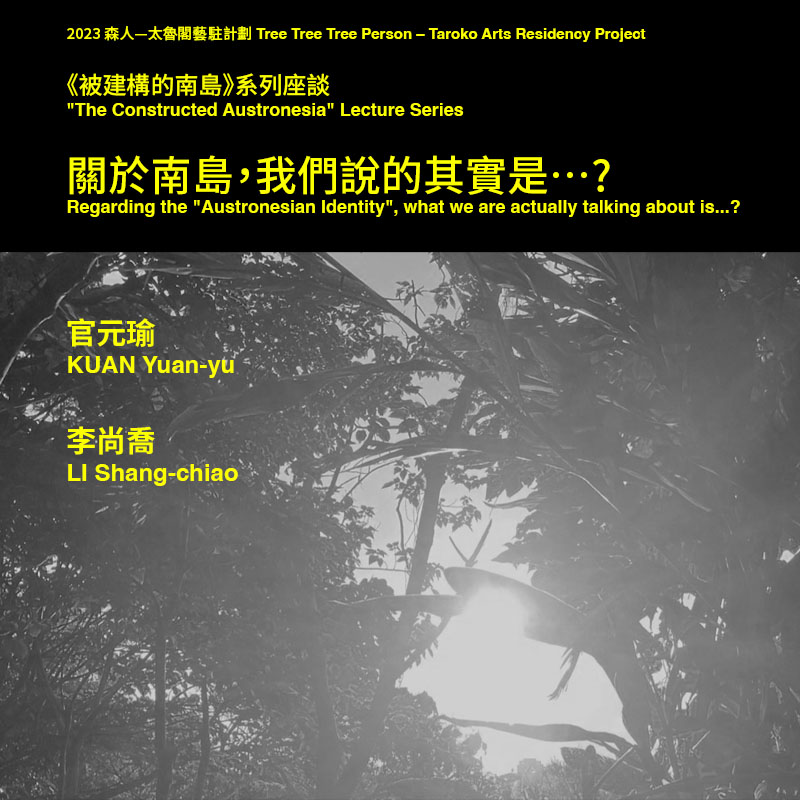“The Constructed Austronesia ” Lecture Series
Since the interaction between Taiwan and the Pacific region under the name of Austronesia began with the exchange between the Yami people of Orchid Island and the Bajau people of the Philippines in 1997, these successful exchanges have transcended national diplomatic restrictions and solidified the discourse that “Taiwan is the homeland of Austronesian-speaking peoples.” After 26 years of development and changes, can the newly formed Austronesian identity and the current “Out of Taiwan Theory” trend help us clarify the new Taiwanese self-identity direction, or will it further immerse us in a romanticized island identity?
In this series of lectures, the resident researcher of the Tree Tree Tree Person, LI Shang-chiao, transforms her residency experiences into lecture format. She invites friends who are interested in the topic to have a casual conversation and discuss their concerns and reflections. The lectures are recorded as podcast content and released after the series of lectures concludes.
Regarding the “Austronesian Identity,” what we are actually talking about is…?
In recent years, Taiwan has witnessed a flourishing of cultural and artistic creations and exchange activities under the banner of “Austronesia” or “Out of Taiwan Theory” as an alternative identity for Taiwan that goes beyond the Chinese cultural sphere. Austronesian identity offers a different cultural imagination that is connected to the Pacific ocean. It seems to provide a more internationally diverse and self-conscious form of identity construction. However, in this wave of cultural marketing and promotion, from the government to civil society, is there a consensus on the understanding of “Austronesian Identity”? When we talk about “Austronesia,” what are we actually exploring?
The resident researcher of the Tree Tree Tree Person in this session, LI Shang-chiao, has previously worked as a scriptwriter for the “Mayfly Island” anime feature / manga and contributed to the production of the “Sasela’an” album. During this period of creative work, she got to know Professor KUAN Yuan-yu, an ethnomusicologist who has lived in Hawaii for 10 years. Since 2019, they have both been continuously observing the strange identity phenomenon. This lecture will present the casual conversations between these two island residents during their field research.
Discussants:
KUAN Yuan-yu, postdoctoral researcher at National Taiwan University’s Institute of Music and Ph.D. in Ethnomusicology from the University of Hawaii
LI Shang-chiao, writer/ director, and resident researcher of the Tree Tree Tree Person
To Whose Ancestor We Claim to Be?

After the grand closing of the Festival of Pacific Arts held in Guam in 2016, Taiwan saw a wave of strengthening its connection with the Pacific to establish a certain level of national confidence. However, as the concept of the “Out of Taiwan Theory” shifted from an “origin narrative” to a more “one big family” style of ethnic identity, how do we break free from the discourse of Western anthropologists and the self-indulgence of claiming others’ ancestors and find our own island identity?
This lecture invites Tipus Chen Li-yi, the Executive Director of the Formosa Indigenous Dance Foundation of Culture and Art, to discuss her experiences, from her childhood curiosity about the linguistic connections with Malaysia, to her experiences as a public television journalist covering the Pacific Arts Festival in Guam, to the ongoing competition between Hualien and Taitung in the “Homelands of the Austronesian,” and the possible future developments of Indigenous Dance Foundation.
Discussants:
Tipus CHEN Li-yi, Executive Director of the Formosa Indigenous Dance Foundation of Culture and Art
LI Shang-chiao, writer/ director, and resident researcher of the Tree Tree Tree Person



